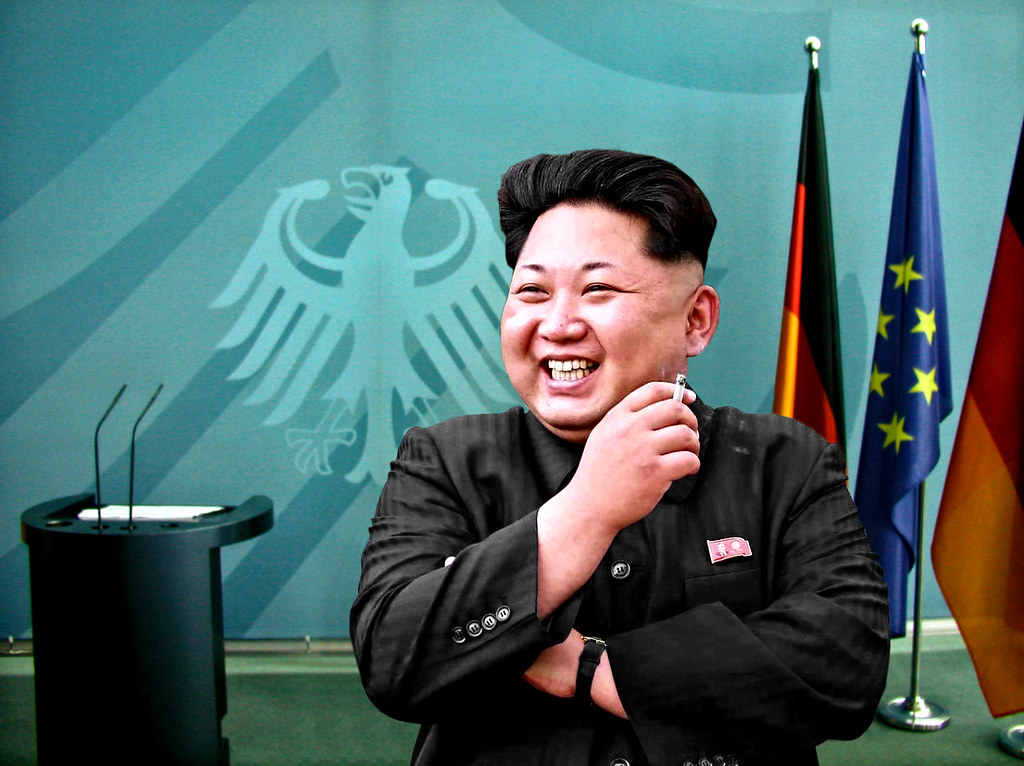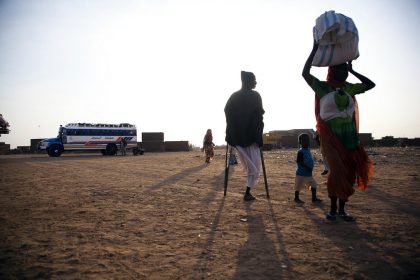North Korean residents’ dire testimonies: starvation grips neighbors, experts warn of unprecedented crisis.
Insights gathered from covert interviews within the secluded nation indicate that North Korea is facing its most severe food shortage since the 1990s, according to experts.
Since the government sealed its borders in 2020, vital supplies have been cut off, and our sources reveal an increased level of control over people’s lives.
Pyongyang claims that the well-being of its citizens has always been a priority, as expressed in its response to the BBC.
In a rare occurrence, the BBC conducted secret interviews with three ordinary individuals in North Korea, facilitated by the organization Daily NK, which operates a network of sources within the country. The interviewees expressed their fear of starving to death or facing execution for defying regulations. Such accounts from inside North Korea are exceptionally scarce.
Sokeel Park from Liberty in North Korea (LiNK), an organization supporting North Korean escapees, characterizes the interviews as unveiling a “devastating tragedy” unfolding within the country.
One woman residing in Pyongyang shared her knowledge of a family of three who perished from starvation within their home. “We knocked on their door to give them water, but nobody answered,” Ji Yeon recalled. Authorities discovered their lifeless bodies upon entering the residence. To protect the identities of the interviewees, Ji Yeon’s name, along with others, has been changed.
A construction worker named Chan Ho, residing near the Chinese border, disclosed that food supplies have reached critically low levels, resulting in the deaths of five individuals in his village due to starvation.
“At first, I was afraid of dying from Covid, but then I began to worry about starving to death,” he stated.
North Korea has long struggled to produce sufficient food for its population of 26 million. The closure of its borders in January 2020 halted the importation of grain, fertilizers, and machinery from China, exacerbating the situation.
Moreover, the border has been fortified with fences, and guards reportedly received orders to shoot anyone attempting to cross, making it nearly impossible for people to smuggle in food through the unofficial markets where most North Koreans obtain their provisions.
Myong Suk, a market trader from the northern region, revealed that nearly three-quarters of the products in her local market used to originate from China but have now vanished.
Along with others who rely on selling smuggled goods, she has witnessed a significant decline in income. Myong Suk shared that her family has never experienced such deprivation, and desperate individuals have resorted to knocking on her door, pleading for food due to their intense hunger.
Ji Yeon from Pyongyang recounted hearing stories of people taking their lives at home or disappearing into the mountains to die, driven by their inability to make a living.
She described the challenges of feeding her children and recalled a time when she went without food for two days, fearing she would perish in her sleep.
The interviews, which corroborate rumors of starvation, have sparked concerns of an impending catastrophe, harking back to the devastating famine of the late 1990s that claimed the lives of up to three million North Koreans.
Peter Ward, a North Korea economist, expressed deep concern that ordinary middle-class individuals are witnessing starvation in their own neighborhoods, indicating a grim situation. However, he clarified that a full-scale societal collapse and mass starvation have not yet occurred.
Hanna Song, director of NKDB, an organization documenting human rights violations in North Korea, concurred, stating that cases of starvation have been rarely reported in the past decade to 15 years. She emphasized that the current circumstances parallel the most challenging period in North Korean history.
Even North Korean leader Kim Jong Un has indirectly acknowledged the severity of the situation by openly referring to a “food crisis” and making
attempts to enhance agricultural production. Nevertheless, he has prioritized funding his nuclear weapons program, conducting a record 63 ballistic missile tests in 2022, estimated to cost over $500 million (£398 million), surpassing the amount needed to address North Korea’s annual grain shortfall.
The interviewees also shed light on the government’s increased control over people’s lives during the past three years, enforced through strengthened punishments and new legislation.
Before the pandemic, over 1,000 individuals would flee North Korea annually, crossing the Yalu River into China, according to data from the South Korean government. However, Myong Suk, the market trader, stated that escaping has become nearly impossible, as approaching the river now leads to severe consequences.
Chan Ho, the construction worker, mentioned that his friend’s son had witnessed closed-door executions, where three to four individuals were killed for attempting to escape. “Every day it gets harder to live,” Chan Ho lamented. “One wrong move, and you are facing execution.”
For more than three years, North Korea has sealed its borders, prohibiting people from leaving or entering the country. Foreigners who were present have mostly departed. The world’s most secretive and oppressive state has transformed into an information void. Amidst this, three courageous individuals risked their lives to inform the BBC of the situation.
The North Korean government was confronted with the findings, responding that it has consistently prioritized the people’s interests, even during challenging times. The North Korean embassy in London dismissed the information as partially inaccurate, alleging that it derived from fabricated testimonies by anti-DPRK forces.
Sokeel Park from LiNK argued that these interviews unveil a “triple whammy” of hardships, comprising a worsening food situation, diminished personal freedom, and an almost insurmountable barrier to escape. He suggested that North Korea is now more repressive than ever before.
Ji Yeon from Pyongyang expressed how surveillance and crackdowns have intensified, leading to a lack of trust among the populace. She herself was interrogated under a new law enacted in December 2020, prohibiting the sharing and consumption of foreign films, TV shows, and songs. The Reactionary Ideology and Culture Rejection Act aims to eradicate foreign influence, and those found distributing South Korean content can face execution.
Ryu Hyun Woo, a former North Korean diplomat who defected in 2019, expressed astonishment at the extreme crackdown on foreign influence, explaining that Kim Jong Un fears people will resent him and rise up if they understand their predicament and the wealth of South Korea.

The interviews indicate a decline in loyalty among some individuals over the past three years.
“Before Covid, people viewed Kim Jong Un positively,” remarked Myong Suk. “Now almost everyone is full of discontent.”
SOURCE: BBC






